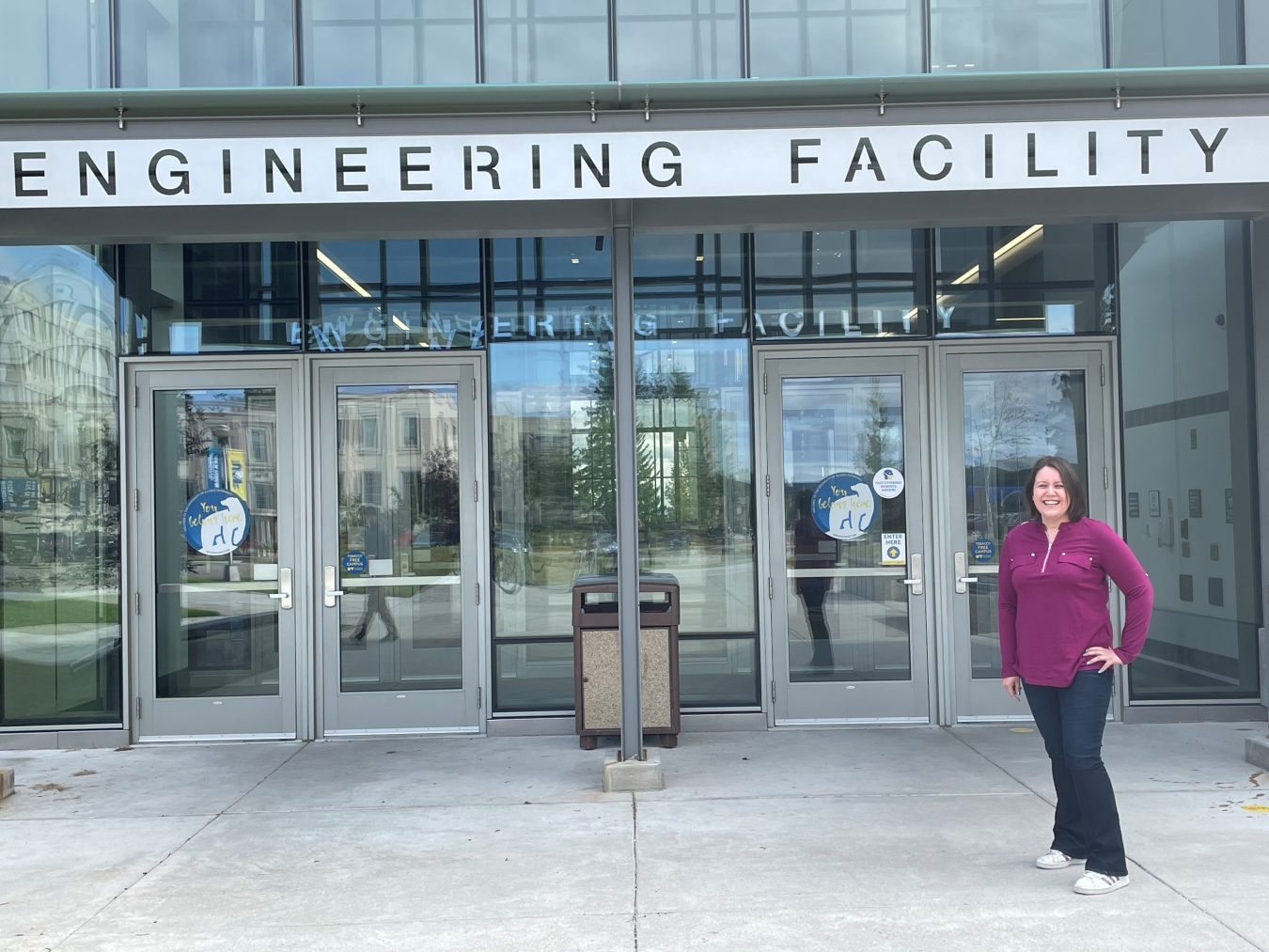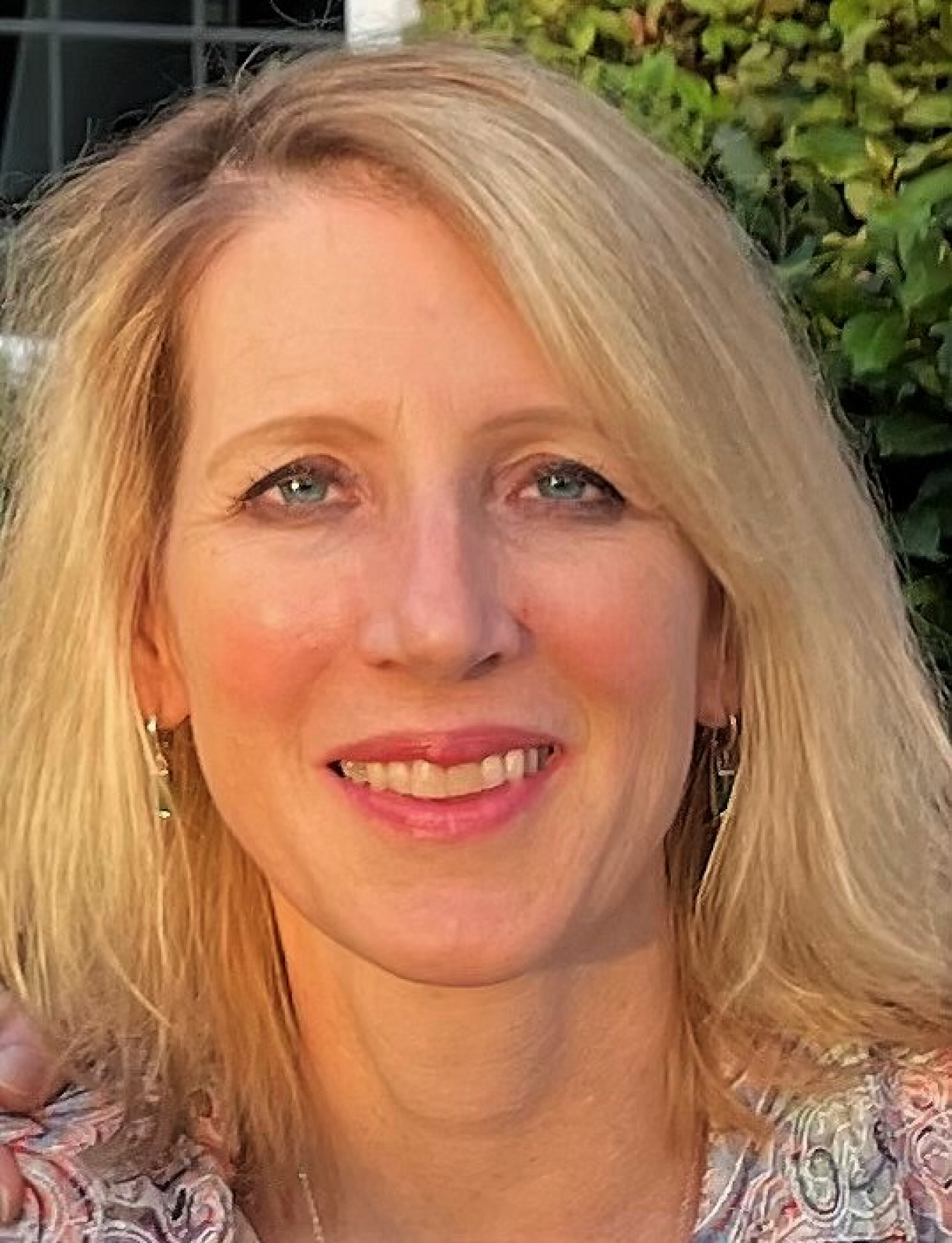Nicole Jacobs is an intern in the Arctic Energy Office whose project was to research ideas for international Arctic collaboration. She is a graduate student at the University of Alaska in climate security and disaster management.
August 12, 2021
Nicole Jacobs was a Minority Education Institution Student Partnership Program (MEISPP) intern in the Arctic Energy Office from June to August 2021. She researched opportunities for international arctic collaboration on clean energy projects, applying her perspective as a graduate student in climate security and disaster management.
What did you expect going into this internship?
I was not sure what to expect. No matter what, I wanted to be open and do my best. I got more than I expected, in a good way. A lot of concepts (related to DOE) make more sense in both national security and energy.
What do you think your fresh perspective brought to DOE?
Honestly, I’m not sure what I brought to the DOE outside of a lot of questions. But the DOE helped me broaden my understanding of national security issues related to the DOE. I tapped into my mentor (Senior Advisor) Mike McEleney’s experience, especially when he asked me to read the arctic strategies. I asked Mike a lot of questions about definitions and context from an international policy perspective. International policy is a very different from disaster policy.
Tell me about your journey of researching U.S. and European collaboration related to the Arctic.
It took me a lot of places. I reviewed all nations’ arctic strategies to find places of collaboration. One area of focus was marine debris, or marine litter. I got really fascinated and am now working on publishing a paper on climate change and marine debris. When you look at the ocean and how dependent we are on the marine environment—from fish to shipping—and the impacts of marine debris, it’s a global problem. Especially coming from Alaska, a lot of people depend on the marine environment for fish and marine mammals for food security.
What areas of collaboration are you seeing?
There is a potential for locally available energy resources--wind, maybe solar, and of particular interest to me, hydrokinetic energy options. I see a lot of collaboration opportunities for climate change research and security. Maritime will be a hotspot for sure.
Did any themes emerge?
DOE’s general concepts like renewable energy, innovation—a lot was on climate resiliency, alternative energy, search and rescue, communication, conserving the environment. I think really there’s a lot open for collaboration. It depends on finding the right people who want to collaborate and take action.
In your studies, you have focused on micro nuclear reactors and their use as an energy source. Did you focus on that during your research into international collaboration?
I looked into it and the more I did, the more questions I had. I started out with nuclear because I am the most comfortable with the research, but after working here, I started learning more about hydrogen and learning other energy sources like ammonia that I never took the time to really explore. I really appreciate the internship because I gained so much insight. I was able to attend all kinds of meetings, including on micro nuclear reactors.
Part of your summer project also dealt with pinpointing challenges with energy and maritime transportation. What did you learn?
I wonder about the idea of emissions-free maritime. But when thinking of the Alaska perspective, most people (businesses) I know in the industry are medium to small and that could be a barrier because not everyone can afford to buy new vessels that are emissions-free. There is a lot to consider. But the deep dive into maritime gave me some ideas. For one, what will climate security look like when it comes to the maritime industry? I wonder if I will be able to see an emissions-free maritime industry in my lifetime. How will it look like in the end? How will search and rescue look? What will risk management look like when talking about hydrogen vessels? It’s a noble effort, I just have so many questions. It’s influencing my research, though, since I am applying for a Ph.D., and my focus is changing from interdisciplinary to applying for natural resources and sustainability with a heavy focus on security and alternative energy sources.
What will your final internship project include?
My final project is providing AEO with some ideas of how we can collaborate internationally—types of projects, gaps in research, what’s in the (international) arctic strategies and where we can collaborate on them.
What are the gaps in research you noticed?
Some gaps in research for marine debris is understanding where it comes from, where it goes, the effects on the ecosystem, maritime industry, and impact on coastal communities in the Arctic. Also, how will marine debris look with changes in ocean salinity, currents, and waves? It’s an interesting conundrum. It’s a hard topic because it takes close coordination and a lot of money to clean up.
What do you hope DOE/AEO will do with the research?
I’d like to see more collaboration on issues like these. I think that the thing that’s interesting to me is it’s only one of the challenges we have in the world—we have so many more like this.
Did anything surprise you about DOE during your internship?
DOE has good diversity. When we were with the other MEISSP interns and they represented all these fields of study, there was several overlaps with security management and climate security. There was so much I had not thought about when I thought of DOE.
How do you think this internship will help you in your career in climate security and disaster management?
I learned so much from the DOE. There are so many fascinating topics in security left unexplored that I am super interested in. I appreciate it, too, because it highlights the more you learn, the less you know. That’s a good way to stay on the ground. There is so much out there to understand, research and be interested in. I also really liked the leadership webinars I was in. I will use it for a class I am a teaching assistant for on leadership in a dangerous context. It made me think about my leadership style and what would I want as a leader. I don’t always take the time to self-reflect on my own leadership.
The internship also gave me a narrowed down focus on what field I’ll go into. I had a great opportunity with George, Matt, and Mike to meet some amazingly intelligent people, to network, and ask questions that I didn’t have experts to ask before.
Overall, did this experience make you aware of opportunities for collaboration not yet tapped?
I think the more I learn about collaboration, the more I need to investigate which areas we can collaborate. At the same time, the more I learn, the more I see we need to collaborate more, especially with climate change. Climate change needs to be a collaborative effort, not only between communities but nationally and internationally. It’s not just one person’s or nation’s problem, it’s everyone’s problem.
Did this experience make you hopeful about the future?
In some ways, yes. In others, I am not so sure. When I look at how climate change is discussed and the policies, it does not give me hope. But when I see various people willing to collaborate between nations--especially with Arctic climate challenges--and put in the time and effort, it does give me some hope.
Anything to add?
I am grateful to have this chance. I’ve been learning so much and feel very fortunate to have gained this opportunity to work with the DOE.
Nicole Jacobs was an intern in the Arctic Energy Office. She is a graduate student at the University of Alaska at Fairbanks in climate security and disaster management. See her blog about ideas to address collaboration for Arctic climate security.
Carolyn Hinkley

Carolyn Hinkley is a communication specialist in the Office of Electricity (OE). In this role, she helps to manage executive communications and internal and external communications, including OE's website.
She previously served as the Acting Communications Director for the Arctic Energy Office, where she managed all aspects of external and internal communications for DOE's only placed-based office in Alaska. Her role included representing Alaska Native concerns on DOE's Tribal Energy Steering Committee. Carolyn joined the Arctic Energy Office from the Office of Energy Efficiency and Renewable Energy (EERE)'s communications team, where she managed the organization's multiple websites and oversaw stakeholder outreach tools and digital best practices. In this role, she also edited a national renewable energy newsletter and provided executive communication support to the organization’s senior leaders.
Before joining EERE, Carolyn provided public affairs support to Western Area Power Administration, specifically in the areas of hydropower generation and transmission and marketing.
She earned a bachelor's degree in journalism and Spanish from the University of Colorado at Boulder, and a master's degree in information and communication technology from the University of Denver.

